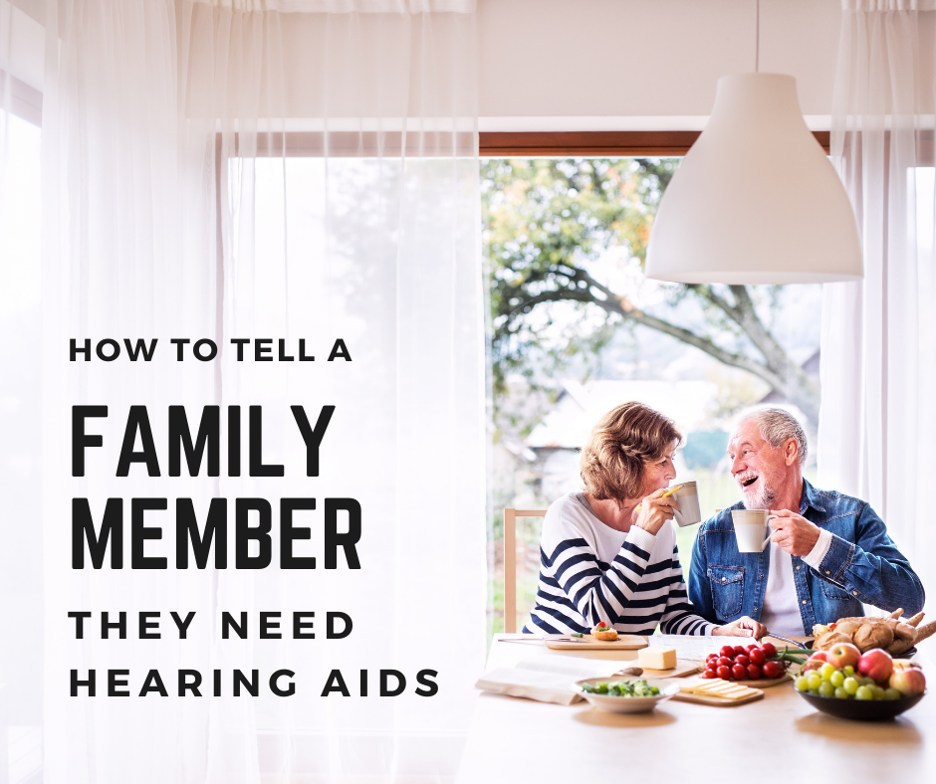
Have you ever told a close friend or family member that they need hearing aids? If so, they may not have taken the news so well. Chances are, however, that you had good reason for saying what you did.
Maybe you’ve noticed that your loved one is constantly asking people to repeat themselves. Or, perhaps they often turn up the volume on the TV or radio. Either way, they may have hearing loss and could probably benefit from hearing aids or another assistive listening device. Getting them to recognize the problem themselves, however, is another matter altogether.
4 Key Reasons Why People Don’t Want Hearing Aids
As a bystander, it’s easy to see how hearing aids could benefit your loved one. But, what reasons do they give for not wanting them? These are the most common:
- Denial – They simply don’t think they need hearing aids. And, when they’re sitting in a quiet room, talking to one person face to face … they probably don’t. Their ability to hear is much different, however, when there’s a lot of background noise, more than one person talking at once, or the speaker is out of sight.
- Expense – There’s no doubt about the fact that hearing aids cost a significant amount of money. Some cost as little as $1,500 but top-of-the-line, quality hearing aids can be as much as $10,000.
- Unrealistic expectations – If they’re expecting hearing aids to function as well as a healthy human ear, they could be disappointed. Modern hearing aid technology is pretty amazing in all that it can do. But, it won’t miraculously restore their hearing to normal levels.
- Appearance – Even if they know they need hearing aids, your loved one may be afraid to wear them for fear of what they look like. They may not be aware of new technology, however, that is very discrete and almost unnoticeable.
5 Steps to Help Your Loved One Realize They Need Hearing Aids
Having a conversation about hearing aids with your family member may be awkward, but it’s a lot easier if you break it down into these simple steps:
- Help them recognize they have a hearing problem. No one can solve a problem if they don’t know it exists. If your loved one doesn’t think they need hearing aids, ask them if they’d be willing to schedule a hearing test to prove you wrong!
- Teach them about investment vs. cost. Rather than looking at hearing aids as an expense, help your loved one see them as an investment … an investment in themselves, their hearing health, and even their relationships.
- Show them what hearing aids can do. While they can’t do everything, hearing aids can amplify sound and significantly improve quality of life for individuals with hearing loss. When they recognize they need hearing aids and choose to wear them, your loved one can enjoy better hearing, more meaningful conversations, and a renewed social life.
- Learn about hearing aid options. If appearance is a concern, make sure this is expressed to your family member’s audiologist. He or she will work closely with your loved one to find the best hearing aidsthat fit their lifestyle, budget, and aesthetic concerns.
- See what health insurance will cover. Insurance companies vary widely in the types of audiology services and hearing aids that they will cover. Of course, the main goal is to find hearing aids that will best meet your loved one’s hearing needs. But, if they can be partially or completely covered by insurance, that helps eliminate one reason for not getting them!
Try Hearing Aids For FREE!
At Advanced Hearing Group, we understand that even when individuals need hearing aids, they’re not always willing to get them. Or, they’re nervous about making a large investment in something they’re not sure will work for them.
That’s why we offer the NOW Program … try out a new pair of hearing aids before you buy with NO money down and absolutely NO risk! There’s never been an easier way to help a family member get the hearing aids they need. Simply schedule an appointment with us today and see for yourself!

